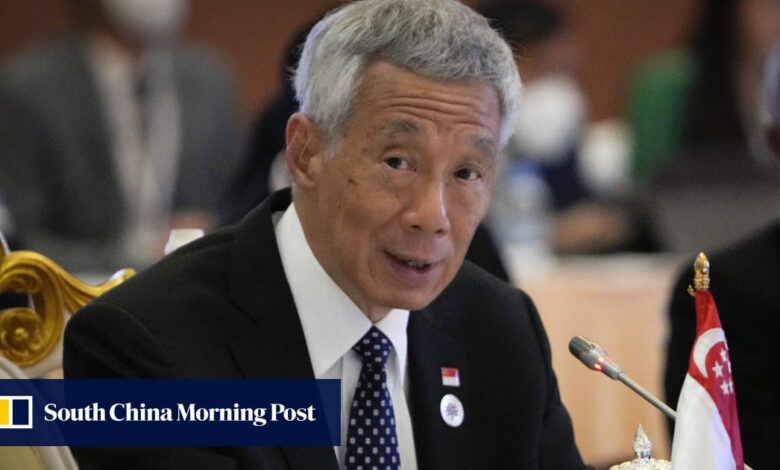Southeast Asia won’t be ‘split between two camps’ over US-China rivalry, Singapore’s Lee Hsien Loong says

[ad_1]
“So even countries that are not like-minded allies need to learn to cooperate and coexist with one another,” Lee said.
The Singapore leader was speaking at the final panel of the two-day foreign policy forum organised by Singapore newspapers The Straits Times, Lianhe Zaobao and The Business Times.
“Asian countries need to insulate their overall relations from these specific difficulties, build mutual trust, and to continue to cooperate pragmatically for mutual benefit,” Lee said.
US’ anti-China rhetoric may hurt ‘window of opportunity’ to mend ties: analysts
US’ anti-China rhetoric may hurt ‘window of opportunity’ to mend ties: analysts
Lee also reiterated a key theme of his remarks on geopolitics in recent years – that rising nationalism and trade protectionism posed serious challenges to the region.
“Globalisation is in retreat,” Lee said. “Trade and investment flows are increasingly being organised not just by economic logic, but by geopolitical orientation and national security imperatives.”
More are intervening in their economies and flouting international trade rules “in the name of resilience and self-reliance”, which compel others to do the same, Lee said.
“[This] distorts markets, leads to escalating rounds of state support and protection, and leaves everyone worse off. It’s a global trend, and affects our region too,” he said, urging governments to resist this trend.
In order for the region to reach its full potential in spite of these challenges, Lee said that states should “demonstrate a high standard of statesmanship and strong resolve to focus on shared interests” given the many opportunities for “win-win cooperation”.

In response, Lee said Singapore was “very happy” to have hosted such dialogues in the past. Singapore in 1993 hosted a meeting of semi-government bodies from both sides – Beijing’s Wang Daohan and Taipei’s Koo Chen-fu, in what is now dubbed the Wang-Koo summit and viewed as an important moment in cross-strait ties.
Since the end of the war, Beijing has viewed Taiwan as a renegade province that should be brought under mainland control, by force if necessary. While many nations, including the US, do not officially acknowledge Taiwan as an independent state, they oppose any use of force to alter the status quo.

On the possibility of hosting another meeting, Singapore’s Lee said: “If the circumstances dictate … further meetings in future, we would be very happy to be the party sitting there, providing the room and pouring the tea.”
He suggested that coming high-level meetings between US and China officials could yield positive results, but ultimately still needed to “be managed by both sides” and could be “disastrous for both sides and also for the world” if not handled properly.
‘Extreme’ US-China rivalry could be economically ‘disastrous’: Singapore’s Wong
‘Extreme’ US-China rivalry could be economically ‘disastrous’: Singapore’s Wong
Lee’s comments come amid talk that the ongoing flurry of diplomacy between Beijing and Washington could culminate in a leaders’ summit on the sidelines of the Apec summit in California later this year.
[ad_2]
Source link

